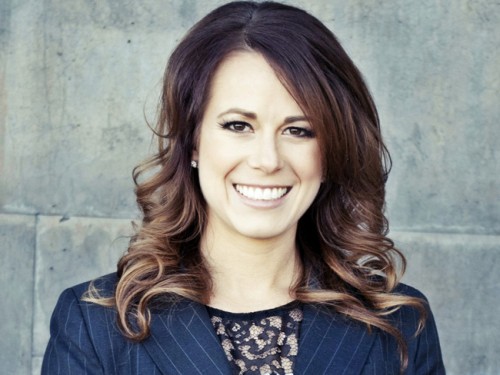
Sidnee Peck, the director of the Center for Entrepreneurship and director of Entrepreneurial Initiatives at Arizona State’s W.P. Carey School of Business. Courtesy Photo
SOCIAL ENTREPRENEURSHIP COMPETITION: A SIGN OF THE TIMES
Pakis described the evening as a “rip-roaring success” and said what separated All Walks from the two other finalists was its readiness to scale. “They were ready to go on Monday,” believes Pakis. For Pakis, creating a social enterprise competition was a natural extension and evolution of the now 20-year-old Pakis Family Foundation and the way the millennial generation is choosing to do business.
“After getting more and more familiar with philanthropy over the years, we started getting interested in the idea of corporate consciousness and corporate social responsibility,” says Pakis, noting his foundation began looking at new ways of developing their philanthropic efforts as well as the traditional giving.
Interestingly, Pakis doesn’t have the background of a traditional do-gooder. “I came from the old school maximize your personal net worth mindset,” admits Pakis. “That’s what people looked for and was the mainstream.” Indeed, after Pakis earned a business degree from Case Western Reserve University, he went right to work for Sherwin Williams and then Deloitte, before starting and running his own venture, JDA Software, for 15 years. He also participated in London Business School’s Sloan Fellowship program along the way.
“Now the mainstream is you want to be proud of your company and what it does for the community,” continues Pakis. “You want to be a conscious form of capitalism and not just a maximize shareholder return type of company.”
The problem for Pakis and his foundation was they weren’t seeing enough of the “mission-driven-type of startups.”
“These candidates coming to our door were few and far between,” says Pakis. “So we decided to take a more proactive approach.” The proactive approach led to relationships with Peck and SEED SPOT, which is a nonprofit and the eventual establishment of the Pakis Social Entrepreneurship Challenge.
ARIZONA STATE A CAMPUS OF BUDDING ENTREPRENEURSHIP
At the Carey School and the larger Arizona State campus community, Peck says entrepreneurship and a focus on social entrepreneurship have both been building in interest and momentum over the past decade. A big step towards entrepreneurial prowess came in 2006 when Arizona State was awarded a Kauffman Foundation grant to transform its entrepreneurial education efforts. “We developed it under the mindset that entrepreneurship can be for anyone, no matter what your studying or what your interests or skills are,” explains Peck. “If you want to create your own organization or venture in that space, you should be able to.”
Later, Arizona State’s social enterprise interest and involvement grew significantly when the campus was named one of 30 Ashoka U. Changemaker Campuses as well as gaining Clinton Global Initiative U. status. Arizona State’s student-led Changemaker Central was established as a hub for students interested in “alternative career paths” like Teach for America or Peace Corps, says Peck. But it’s evolved into a spot for like-minded students to meet and ideate solutions for social and environmental challenges.
“This is where students can come and meet co-founders,” Peck says of Changemaker Central. “And social entrepreneurship is usually what comes of it because these students are drawn together by a cause. Then they decide, we should come together and do something about this. And I think as a generation, we’re seeing more and more of this.”
‘MILLENNIALS ARE DEMANDING SOCIAL RELEVANCE IN THEIR CAREERS’
Pakis believes the interest level in social entrepreneurship will only grow. “I think it’s the way of the future,” says Pakis. “It’s the new new … I think it’s mandatory. I think millennials are demanding social relevance in their careers.”
Peck sees it the same way. “We really can be the most powerful if we can attack a social need through for-profit business,” insists Peck. “Or if we’re running a for-profit business, we consider our communities and the planet and our employees as a holistic approach.”
This was just the second year of the Spark Tank competition, which also includes the Sun Devil Igniter Challenge for “disruptive” teams. Peck says the organizing of a Shark Tank inspired competition was a response to a call from students who wanted to see fellow students pitching. LetsChat, a text chat-based English language teaching platform were awarded the first place prize and $50,000.











Questions about this article? Email us or leave a comment below.